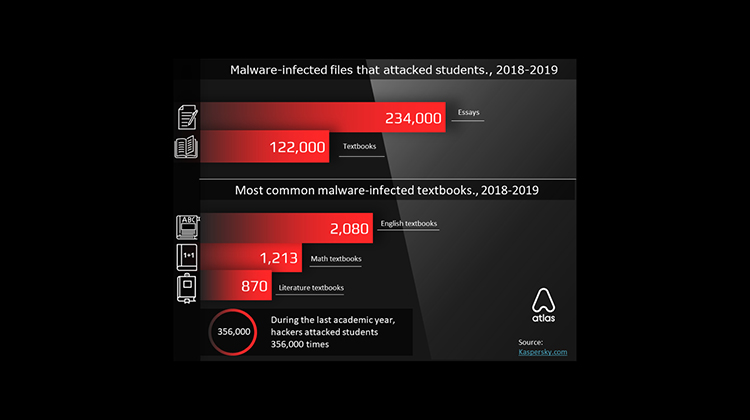Schools getting cryptojacked

Just in case you haven’t had enough of viruses, here’s some digital ones. This is a nice 21st century problem; increasingly hackers are attacking schools to hijack their computer power to assist in the memory heavy activity of cryptocurrency mining.
Because Cryptojacking malware uses the victim’s computer resources to mine cryptocurrencies for the hackers it makes computer software and internet connection speed suffer and data usage skyrocket, and devices' batteries drain much faster.
Hackers aim to remain unnoticed so that they can mine as many cryptocurrencies as possible. In the middle of 2019, many cryptocurrency markets saw price increases. Kaspersky antivirus detected 2,259,038 mining malware-infected files on their users’ computers in 2019.
Cybercriminals started targeting the field of education and attacked users more than 356,000 times during the last academic year (2018-2019) according to data collected by Atlas VPN.
Textbooks are expensive and writing essays is time-consuming so pupils search for illegal downloads. In 234,000 cases, downloaded essays had hidden malware and students downloaded 122,000 malware-infected textbooks.
The most malware effected downloads were English textbooks, with 2080 unique cases. Not far behind were maths textbooks, attacking 1213 students. Literature is in third place, with 870 infected downloads.
In 35.5 per cent of the 356,000 attacks identified, the malware contained a well-known Stalk Worm (Worm.Win32 Stalk.a).
After infecting the school’s network, the worm can steal students’, teachers’, and administration’s data. Then, hackers demand a ransom from the school in exchange for deleting the data or they sell it on the black market.
Data collected from a successful attack can be sold for $250 to $350 per record on the black market. Ransom demands range from $10,000 to $150,000, depending on the amount and type of data stolen.
One way you can protect your mobile device is by installing a Virtual Private Network (VPN). A VPN encrypts your internet connection and changes your IP address so your online time becomes completely safe and secure.